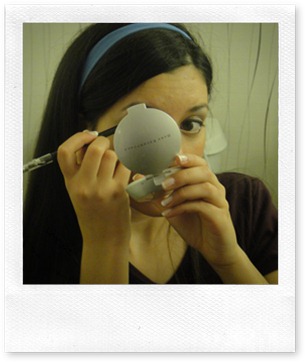First of all what is a charter school?
A charter school is a public school that is exempt from most regulations that bind school districts except where those regulations are specified by law. Charter schools are usually created by teachers, parents, and community leaders and are sponsored by school boards or the state. Goals and expectations are agreed upon by the charter organizers and sponsoring group and written up in an agreement or charter.
A charter school is a public school. Just like all public schools, they may not charge tuition, teach religion, nor discriminate against any pupil based on his ethnicity, gender, or disability. Unlike other public schools, charter schools are schools of choice. Parents have a choice to enroll their children there, and teachers and administrators have a choice to provide education in a nontraditional manner. Which brings us to homeschooling….
Many, but not all, charter schools are set up to provide support to the homeschooling family. That support differs from school to school, but many home-based charter schools provide support by funding tuition purchases, providing extra-curricular activities, opportunities for social activities and field trips, and over-site by certified teachers. All charter schools provide transcripts and the standardized testing required by the state in which they are set up.
Many homeschoolers consider those that use charter schools to not be homeschoolers. And legally they are not homeschooling; those that are enrolled in a charter school are public school students. What constitutes a homeschooler differs state by state. For the purposes of this article, I am going to refer to those using a home-based charter school as homeschoolers simply for the reason that school is happening at home!
The question I’ve been asked to answer: How do you make a charter school work for you when you have so many hoops to jump through?
Some of the hoops (or requirements) that I’ve had to jump through to utilize charter schools in the state of California are education specialists visits, work samples, restricted curriculum choices, meeting state standards, and standardized testing. My specific experiences relate to the state of California, but most likely are similar to other states’ requirements.
Education Specialists Visits Once every 20 school days an education specialist (commonly referred to as an ES) is required to meet with you, the teacher, and the students to discuss work accomplished, plan further work, and collect work samples. She or he is a certified teacher and is part of the process in place to make sure students are making progress.
Once every 20 days usually works out to be once a month that our ES come to visit us. Our visits are about 20-30 minutes in length and in addition to going over the work we have planned, she answers any questions we have about school policies and helps us fill out all required paperwork. I prefer to meet at home as this interrupts our day less, but other families choose to meet their ES at the school office, a local library, or another public place. Know what your charters requirements are for what goes on at ES meetings and let your ES know if you feel they are over stepping those requirements. Also know that you may request another ES if your family does not mesh with the one assigned to you. Feel free to talk to the office staff about what you are looking for in an ES. I’ve found different ES have different educational philosophies just like homeschoolers. If you love to use a stack of textbooks at home, an ES with the viewpoint of school at home might fit your family better than an ES with a preference towards classical education.
I look at my ES visits as a time to make sure I’m organized and on track with plans for the year.
Work Samples Work samples required differ charter school to charter school. The charter school we are using now requires one work sample from each subject we are working on with each ES visit. Keep in mind that a work sample does not have to be a worksheet or test! Some of the things I’ve turned in for work samples include maps, posters, lab sheets, power-point presentations, mp3 files of speeches and music performances, journal entries, and pictures—lots of pictures. I’ve turned in pictures of sporting events, performances, gardening projects, science experiments, bulletin boards, art projects, timelines, history notebooks, field trips, math projects, and any other hands-on projects we’ve worked on. And I will admit that occasionally it’s time for our ES visit, and we have nothing to turn in to our ES, so we complete a worksheet just for our work sample. That doesn’t happen too often and doesn’t take up too much time when it does happen.
Restricted Curriculum Choices As a public school a charter school can not appropriate curriculum or materials that are religious in nature or even allow religious teaching as part of their program. I do use a few curriculum choices that are not secular which I purchase with my own money. These are subjects are that are adequately covered without these religious based materials, so I am able to supply work samples from other materials used.
I also include scripture, hymn, and other religious study in my home. I do not consider these studies to be part of our school time, but rather our family time. This family time happens with my children who attend a public school as well as my children who stay at home for school.
Meeting State Standards Just like other public schools, charter schools are required to teach to the state standards. Looking at this list of state standards will leave most feeling confused and overwhelmed with the task of teaching these standards. Many charter schools will provide a parent friendly list of standards written in everyday language that is easy to understand. If your charter school does not provide this list, many are available on the internet. Here is a complete list of California state standards in easy-to-understand language.
Another way I’ve come to understand exactly what is expected of these standards is looking at the educational portion of museum websites. Looking at The Natural History Museum of Los Angeles County’s educational website, I can see that visiting the gold display and discussing what we see meets state standards in math, language arts, and science.
To be honest, I’ve found that most state standards are met by simply completing our normal educational activities and do not require much forethought. One area that is not always the case is the social studies standards. I do not teach social studies, but rather teach world history on a four year rotation. California state standards require American history almost every year. I’ve met these standards by teaching about American history through patriotic holidays. When Memorial Day comes around we read a book or two from the library about that holiday. Standard met! Remember most standards do not require depth of learning and are easily met with an introduction and discussion about the topic.
And that brings us to Standardized Testing. Public schools in California (and most other states) are required to prove their worth through testing. This is especially important for charter schools as they usually do not have other regular assessments to prove their students are progressing. That being said---I do not teach to the test. I do teach my children how to take tests, a skill I feel is important. Also keep in mind that you may ask to have testing spread out over several days and may also request private testing for your child. And last but not least----the scores your child earns are not a grade for you the teacher. Rather they measure your child’s success on a test one day of the year on material he or she may or may not have learned.
The key to utilizing charter schools is to research and learn all you can about their requirements. Know the rules and expectations. As the case with any public school, you, the parent, must be the one that advocates for your children. Learn what services are available. Learn what is required and what is not required. Be willing to speak up when needed.
What have been your experiences with charter schools? Does anyone have a simplified list of state standards for other states than California? Any other questions I just didn’t answer?




